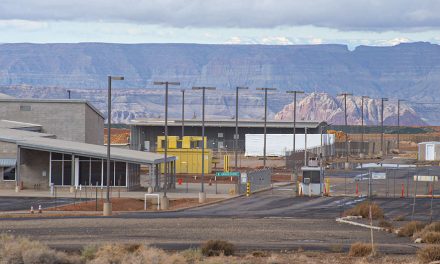
Letters | Tactics of secrecy
Tactics of secrecy
The Navajo peoples request for more accountability from tribal entities like NTUA and other enterprises is difficult.
Over the years, the Navajo Nation has lessened the reins on the tribal entities and enterprises. The result is self-governance by the tribal entities and enterprises has brought abuse.
All Navajo tribal entities and enterprises have governing boards that select their CEO and general managers. These tribal entities have the money to hire the best corporate attorneys, which government attorneys like DOJ are no match for. The CEOs and general managers in many cases select their own board members. All this creates an internal need for total loyalty even if abuse happens. These governing boards are the only ones that have authority to discipline their general managers and CEO, which is why the tribal leadership, and its government attorneys are powerless in the NTUA case.
When issues like sexual harassment or financial abuse arise from the highest ranks in these tribal entities and enterprises like NTUA, tribal leadership has little power to exercise and fix the problem. The boards rally around their CEO and general managers to protect their own interest. A good example was the case with Natannii Corporation. The tribe tried for four years to get answers from the board and its CEO about its spending of the tribe’s monies. The corporate attorneys used every trick in the bag to keep the tribal officials from getting that information for four years.
These outside corporate attorneys use tactics such as confidentiality that keep tribal oversight to a bare minimum. At last count, NTUA had eight outside attorneys on their payroll. It’s not uncommon for these tribal entities to pay three to five million a year for their corporate attorneys to provide legal protection from the tribal leadership.
Another tactic tribal entities and enterprises use is executive session, which allows limited personnel being allowed to see their books and question them. This keeps only a few tribal government officials with access to see things like internal company spending. This tactic also keeps the Navajo public from seeing what exorbitant salaries are paid to executives and management, excessive travel spending, and even limits leadership from seeing what they pay their board members and shareholders. It was recently revealed that the former speaker had an internal account from NNOGC to cover alcohol and other costs for his enjoyment, which eventually led to his downfall.
All these tactics of secrecy and more are imposed by the tribal entities and enterprises’ corporate attorneys, which is why when a CEO, general manager, or board member causes abuse the tribal leadership itself is powerless. The NTUA case is a classic example of how internally everyone at the top protects their own. Fear is a tactic these entities and enterprises sell constantly to the tribal leadership if they try to regulate them.
The tribal leadership needs to go back and legislatively strengthen the law that would allow them to exercise more authority over all tribal entities and enterprises when abuse such as sexual and financial abuse occurs. This change should include removing the full board management once the abuse happens.
The law needs to also limit the terms of the boards to no more than four years. Lifetime board membership should only be allowed from the U.S. Supreme Court judges. Wait, even the Supreme Court judge’s lifetime board membership is being challenged today.
For now, the Navajo tribal enterprises and entities boards enjoy this lifetime board membership with the U.S. Supreme Court judges.
Alice Nelson Yazzie
Shiprock








 Highway 264,
Highway 264, I-40, WB @ Winslow
I-40, WB @ Winslow